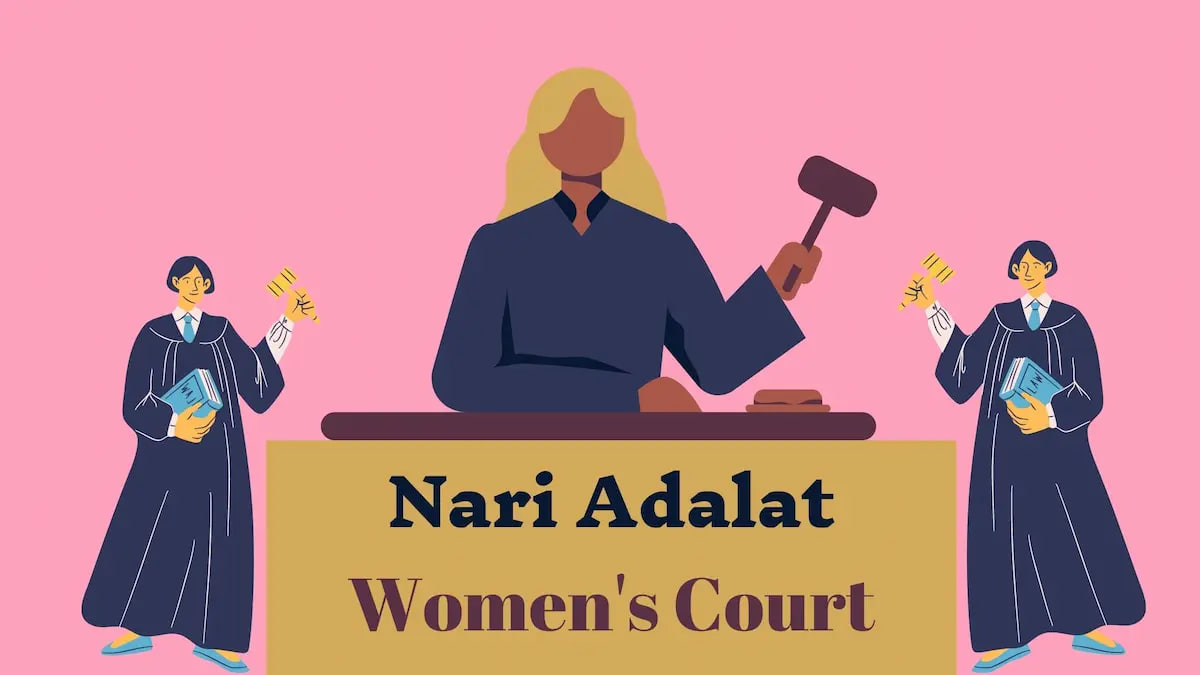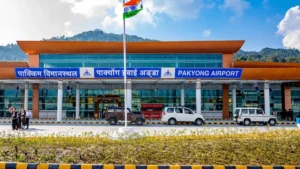The Indian government is launching a groundbreaking initiative known as Nari Adalats, which are women-only courts established at the village level. These courts serve as alternative dispute resolution forums for issues such as domestic violence, property rights, and challenging the patriarchal system. By providing a platform for resolution outside of the traditional judicial system, the government aims to empower women and promote gender justice.
What is Alternate Dispute Resolution (ADR)?
- ADR refers to the process of settling disputes without the involvement of the judicial system and formal trials.
- It covers various types of matters, including civil, commercial, industrial, and family disputes.
- A neutral third party assists the parties involved in communication and reaching a mutually satisfactory resolution.
- ADR is non-adversarial and aims to reduce the burden on courts by facilitating cooperative resolutions.
Types of ADR:
- Arbitration: Disputes are submitted to an arbitral tribunal that makes a binding decision on the matter.
- Conciliation: A non-binding procedure where an impartial conciliator assists the parties in reaching a mutually agreed settlement.
- Mediation: An impartial mediator helps parties communicate and work towards a mutually acceptable resolution without making decisions.
- Negotiation: Parties engage in direct discussions without third-party intervention to arrive at a negotiated settlement.
- Lok Adalat: Voluntary agencies known as Lok Adalats provide party-based justice through discussion, persuasion, and mutual consent.
What are Lok Adalats?
- Lok Adalats are part of the Indian legal system and offer affordable and timely justice through cooperation between people and judges.
- They have statutory status under the Legal Services Authorities Act, 1987.
- Lok Adalats have jurisdiction over pending court cases and matters that have not yet been brought before a court (pre-litigation stage).
- The decisions made by Lok Adalats are deemed to be decrees of civil courts, and their awards are final and binding with no appeal process.
- Filing cases in Lok Adalats does not require payment of court fees.
The Nari Adalat Initiative:
- The Ministry of Women and Child Development, under the Sambal sub-scheme of Mission Shakti, will implement the Nari Adalats.
- Initially launched as a pilot project in 50 villages in Assam and Jammu and Kashmir, the initiative will expand to the entire country in the next six months.
- Implementation will be a collaborative effort involving the Ministry of Panchayati Raj, the Ministry of Rural Development, and Common Service Centers operated by MeitY.
- The scheme draws inspiration from the Parivarik Mahila Lok Adalats (People’s Court of Women) previously run by the National Commission for Women.
- The Nari Adalats aim to focus on reconciliation, grievance redressal, and raising awareness of women’s rights and entitlements.
Structure of Nari Adalats:
- Each Nari Adalat in a village will consist of 7-9 members or Nyaya Sakhis (legal friends).
- Half of the members will be elected members of the gram panchayat, while the other half will be women with social standing, such as teachers, doctors, and social workers, nominated by villagers.
- The Nyaya Sakhis will select a Mukhya Nyaya Sakhi (chief legal friend) to head the Nari Adalat for a typical six-month term.
- Although Nari Adalats do not hold legal status, their primary focus is on reconciliation, grievance redressal, and promoting awareness of rights and entitlements.




 7 Countries that Celebrate Holi Like Ind...
7 Countries that Celebrate Holi Like Ind...
 Google Launches Nano Banana 2 Powered by...
Google Launches Nano Banana 2 Powered by...
 Pakyong Airport to Be Renamed After Free...
Pakyong Airport to Be Renamed After Free...








